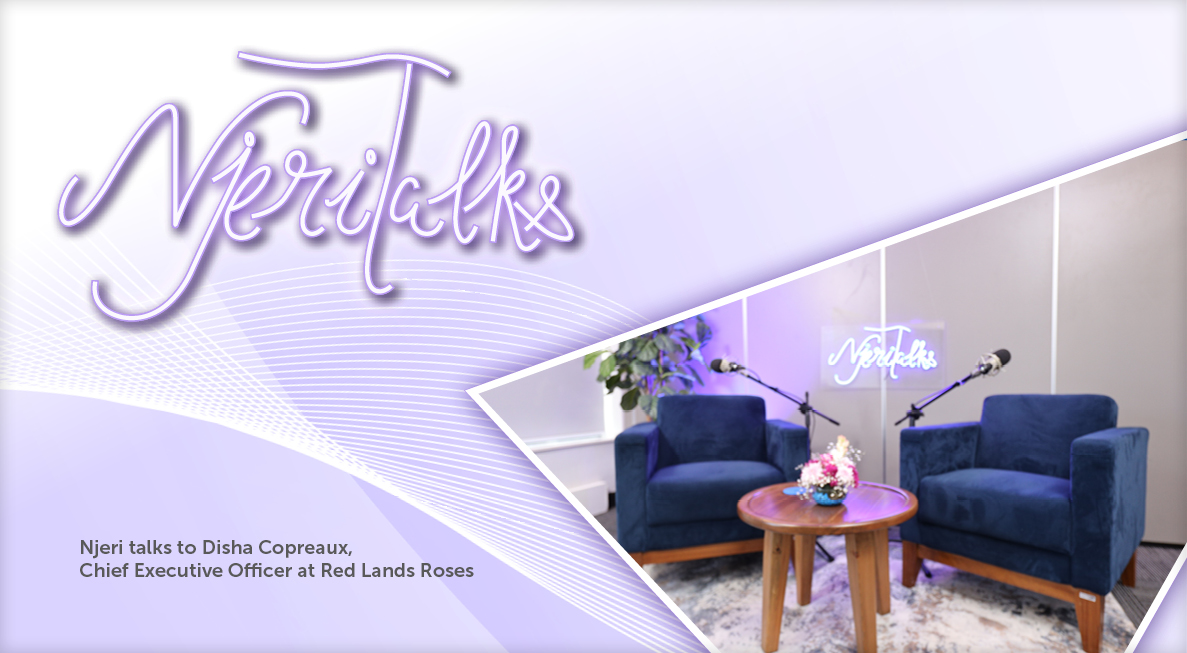Graduate Matters Edition - Why am I not getting interviews: CV and application tactics
At a glance
- Does your CV and cover letter invite the reader to know about you and confirm your eligibility for the role? Is your application relevant, truthful, and honest? Is the content clear, concise, and consistent?
- What is your application approach – Is it intentional, and are you tracking where you've applied or is it the spray and pray tactic?
- Remember to manage your expectations, remain persistent in a highly competitive industry and apply the ABCs to increase your chances to secure the right interview.

Graduate Matters Edition - Why am I not getting interviews: CV and application tactics
Podcast
Graduate Matters Edition - Why am I not getting interviews: CV and application tactics
Podcast
Transcript
Boipelo Mathodlana: Welcome to the CDH Conversations Podcast, Graduate Matters Edition. We are your resident hosts. I'm Boipelo.
Malebo Maholo: And I'm Malebo.
Boipelo Mathodlana: And together we form part of the CDH graduate recruitment team. Today we'll be talking about CV and application tactics to help you answer the question; "Why am I not getting any interviews?"
So we've just wrapped up the winter vacation program season and the final university semester has begun, which is the right time for most students to get their applications out there, be noticed for the right reasons, and hopefully receive that long awaited invitation for an interview. For today's Graduate Matters Edition, we'll dive into CV development, as well as application tactics and principles that may assist you to secure those elusive interviews.
Here's a small disclaimer: The information we're about to share with you may not guarantee an interview, but we hope that it will help you to improve your applications and increase your chances to secure the right interview for you.
Let's start with the CV.
To me, a CV is a personal expression of who and what you're about, who you aim to be, and how that is aligned to a role that you're applying for.
But speaking more practically, Malebo, can you delve into the purpose of a CV and the common mistakes that you have noted?
Malebo Maholo: You are absolutely correct, Boipelo. The purpose of a CV is to provide a potential employer with a summary of your academic, professional, and personal achievements. And by personal information, please do leave out your ID number and home address. The person reviewing your application needs to be enticed and interested by your experiences, accomplishments, and to confirm your eligibility for a role.
So ultimately, you just want to have a full application that has your CV, cover letter, transcripts, to tie and tell a story of who you are and what you have to offer.
The common mistakes applicants make is keeping their CVs way too generic.
This is not a one size fits all approach, a cover letter with grammatical errors while you have identified and indicated in your CV that you have good written and communication skill and attention to detail, does not link. So please ensure that the information you provide in your CV is factual and shows in your cover letter.
Boipelo Mathodlana: I find that a little bit confusing. Malebo, perhaps you can go into the difference between a cover letter and a personal statement.
Malebo Maholo: The common mistakes that we make as applicants is confusing the difference between a personal statement and cover letter. A cover letter is a bit more specific and should be intentional. This is where you demonstrate your interest in a role, where you tell the potential employer about yourself by describing why you are an ideal candidate, whereas a personal statement is more creative, less formal a narrative, and it just gives us a background about who you are. Think of it as painting yourself in a positive image of yourself and describing your qualifications, giving us the reader, a sense of your determination and drive. This should not be more than four to five lines.
Here's a tip: Consider action verbs, concrete and energetic language. Instead of writing; "I'm a third year BA law student looking for vacation work," you could write, "I'm a self-disciplined and hard working third year BA law student interested in vacation work at a commercial law firm where I can demonstrate my ability to contribute to a team, learn, and to eventually grow as a professional."
This is long, but definitely worth considering. So Boipelo, you have a sharp, sharp eye for great talent. How important is it to pay attention to the structure and content of a CV?
Boipelo Mathodlana: It's incredibly important, Malebo. CV structures and formats have evolved with time, and applicants have the liberty to be more creative, but the basics have remained the same. We still require your identification information, your qualifications and experiences, and all of that information has to be structured in a clear, concise, and consistent manner.
Remember, you were trying to make an impression in a quick timeframe, so perhaps ask someone that you trust to proofread your CV or provide you with honest and constructive feedback. I would also suggest going onto our website. In the recruitment roadmap tab, you'll find our student passport, which is a useful guide for navigating the application process, such as writing a cover letter, structuring your CV, and preparing for that all important interview.
Malebo Maholo: Now, the great thing about the Graduate Matters Edition is that in future episodes, we will tackle interviews and assessment sites as our future topics. But now let's say you are now ready to submit your application online. You need to understand the importance of creating an online profile. Creating an online profile on an application tracking system, also known as ATS, such as LinkedIn, Leaply and that of which other companies may opt for, allows the recruiter to quickly read through your application, for you to be considered for a role.
So try customizing your application to speak to the role that you are applying for, and for those with previous work experience, we see you. So please try avoid copy and pasting your job description into your CV. Instead, focus on your main duties and skills that you have developed.
Online applications are usually extremely high level. It allows both yourself and the recruiter to track the application and the recruitment journey. So while creating an online profile may be a tedious process, and believe me, I know, it is important to make sure that you complete it to its entirety, to avoid selling yourself short. And this includes updating your information such as your progress in your academic and professional journey.
But now Boipelo, what if you're doing it right? You have a well-structured CV. You have a personalized cover letter, updated documents, but there's still no sign of an interview.
Boipelo Mathodlana: Well then Malebo, reflect on your approach. Is it a spray and pray where you submit to multiple employers without carefully considering their vacancy requirements, or are you being intentional and keeping track of your applications, based on your suitability for the role, your interests, and your career aspirations?
Most applicants are guilty of assuming that just because they met the basic requirements, which entails having good academics, having demonstrated a balance of diverse interests, have strong technical and soft skills, and felt a culture fit with company representatives at university engagements, then all those factors combined automatically mean that they will be invited for an interview.
But the reality is, Malebo, the competition, especially in the legal sector, is extremely high.
Having that awareness should encourage an applicant to not give up, and to rather continue enriching their CV so that when the right employer calls, they find you ready for that opportunity.
Malebo Maholo: What I'm picking up from our conversation is that persistence is key. The competition is extremely high across all sectors and industries, law included. So I think it's important that we manage our expectations. The quality of our application improves your chances, and you need to be self aware. Ask yourself questions like;
"Why am I applying for this role? Why am I applying for articles? Why am I applying at CDH, or any other law firm for that matter?"
Once you are able to answer that, believe me, your chances of securing an interview will definitely increase.
Boipelo Mathodlana: Thanks Malebo. Also guys, remember that rejection does not predict success. All you need is one 'yes' to counteract all the other declines you have received. And from us, remember the ABCs:
- A - For your attitude because it does determine your altitude;
- B - To begin applying early. Do not wait for the last minute. Research and apply in time, using the correct channels; and finally
- C - Commit to your studies. Ultimately, your application is considered on the strength of your competency for the role.
That's it from us. And if there is a topic that you'd love for us to cover, feel free to send us an email at gradteam@cdhlegal.com. And remember, you are talented. And should join a law firm where talented people thrive.
The information and material published on this website is provided for general purposes only and does not constitute legal advice. We make every effort to ensure that the content is updated regularly and to offer the most current and accurate information. Please consult one of our lawyers on any specific legal problem or matter. We accept no responsibility for any loss or damage, whether direct or consequential, which may arise from reliance on the information contained in these pages. Please refer to our full terms and conditions. Copyright © 2026 Cliffe Dekker Hofmeyr. All rights reserved. For permission to reproduce an article or publication, please contact us cliffedekkerhofmeyr@cdhlegal.com.
Subscribe
We support our clients’ strategic and operational needs by offering innovative, integrated and high quality thought leadership. To stay up to date on the latest legal developments that may potentially impact your business, subscribe to our alerts, seminar and webinar invitations.
Subscribe




